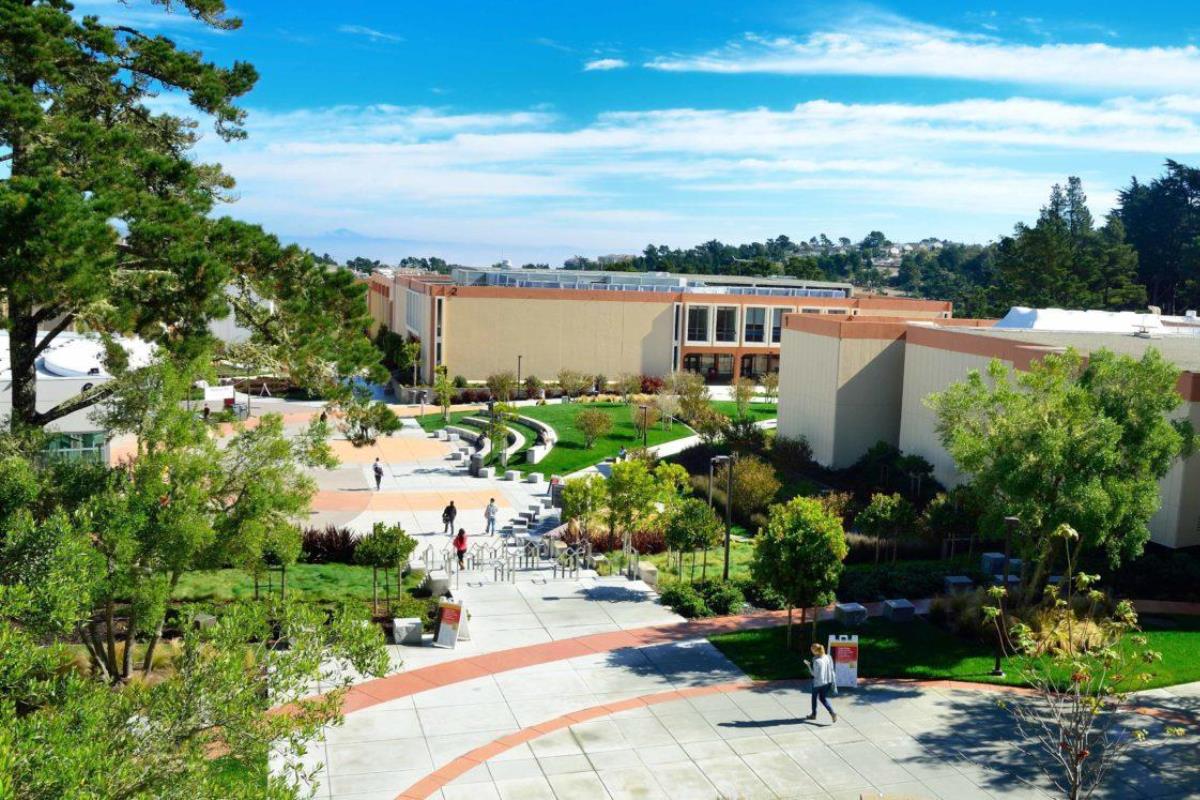
Pullias Center Hosts Invitational Conference on Implementation of AB705
A group of researchers, policymakers, program officers, and advisory board members met in December 2020 to discuss research studies on the implementation of AB705.
In January 2018, California passed AB705, a bill that requires community colleges to maximize the probability that a student will enter and complete transfer-level coursework in English and math within a one-year timeframe. In the past, students were placed into math and English courses based solely on the results of a placement test. Now, with the implementation of AB705, placement into math and English courses can be determined by multiple measures–such as high school coursework, grades, and grade point averages (GPAs)–which means students can use their past performance, rather than a single test score, to show they are ready for transfer-level courses.
“AB705 is a ground-breaking legislation that requires community colleges to maximize throughput,” says Tatiana Melguizo, a USC Rossier Professor and reform expert who studies the impact of public policies on the educational outcomes of minority and low-income students. “By centering [this policy] on the colleges as opposed to the students, [AB 705]—if properly implemented—has the opportunity to expand opportunity and student success. Community college faculty and leaders are taking the opportunity to change the curriculum and pedagogical practices to support students and become student-centered institutions.”
To discuss the research on the implementation of AB705, a two hour conference was organized by Dr. Melguizo and a team at the Pullias Center in partnership with Estela Bensimon of the USC Race and Equity Center and Bensimon & Associates. The event featured three presentations that addressed the ways racially minoritized students are benefiting from the implementation of AB705, along with identifying the enablers and barriers around implementation. Attendees of the conference also considered how the research presented at the meeting could be leveraged to strengthen the racial equity focus of AB705 and to ensure that AB705 fulfills its potential as an anti-racist policy.
The three presentations were conducted by Adrian Trinidad from the USC Race and Equity Center, Federick Ngo from the University of Nevada, Las Vegas Department of Educational Psychology & Higher Education, and Marisol Cuellar Meijia from the Public Policy Institute of California (PPIC).
Adrian Trinidad’s presentation focused on how enactment of AB705 as a policy was an opportunity for faculty and institutional leaders to promote racial equity or maintain the status quo. “Policy design and guidance are essential for implementation as is the appointment of equity minded leadership,” the PhD candidate shared. In his presentation, he also discussed the findings of two case studies of AB705 implementation.
Dr. Ngo described the results of AB705 implementation in the Los Angeles Community College District (LACCD) with a focus on racial equity in access to and completion of transfer-level courses. He noted that “there were gains in completion rates of transfer level math and English courses at LACCD since AB705 implementation.” Dr. Ngo also cautioned that “however, the racial equity gap persists in English and grows in math.”
Finally, Dr. Marisol Cuellar Meijia shared the Public Policy Institute of California’s reports on the statewide implementation of AB705, stating that “racial and ethnic gaps in access to transfer-level math and English classes have narrowed dramatically [and] colleges have made remarkable progress towards improving racial representation.”
To learn more about legislation AB705, you can watch the full recording of the conference and read this interview with Tatiana Melguizo about what progress has been made thus far and what work remains to be done. You can also read a Pullias Report on AB705 Implementation across the LACCD.